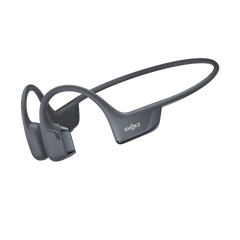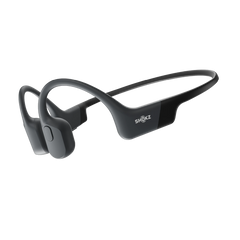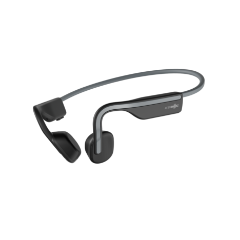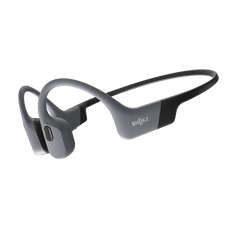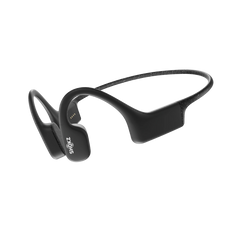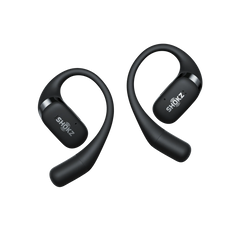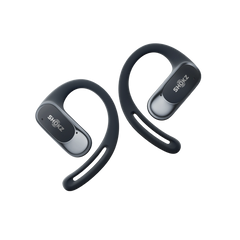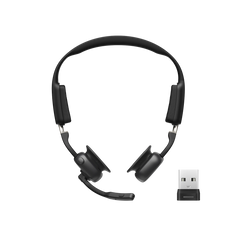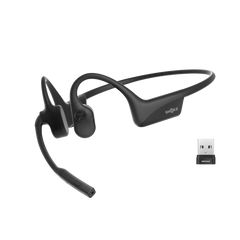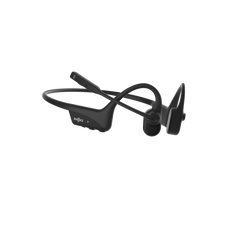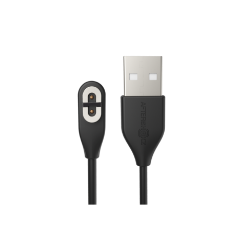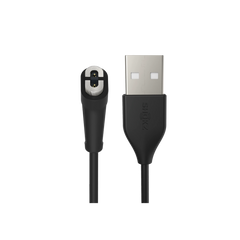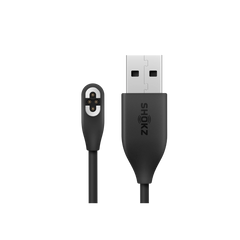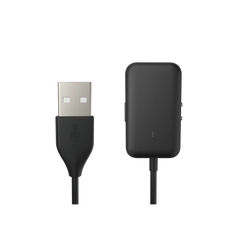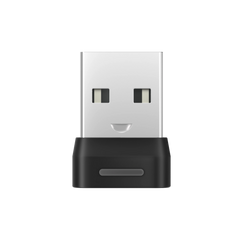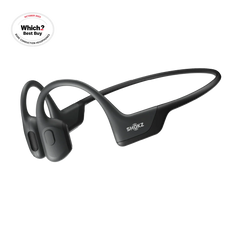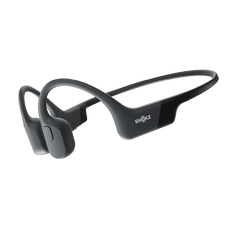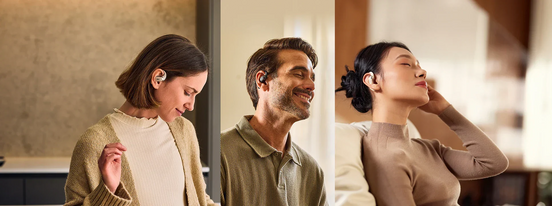Introduction
A quick look on social media will tell you wireless technology is all the rage, but is it the best option?
Wireless headphones have grown significantly in popularity and quality in recent years. However, wired headphones have proven to be a reliable option that stands the test of time, with superior sound quality. Understanding both options' advantages and drawbacks is essential when deciding between wired and wireless headphones.
Wired vs Wireless Headphones
Choosing between wired and wireless headphones comes down to personal preferences and how and where you plan to use them.
Each type has its advantages and disadvantages. Wired headphones offer a reliable connection, while wireless ones provide freedom and flexibility. Understanding the workings and trade-offs of each will help you choose the perfect pair for your needs.
How Do Wired Headphones Work?
As the name suggests, wired headphones send audio signals through wires into your ears. The headphones have tiny magnets, voice coils, and diaphragms that work together to produce and distribute sound from your device.
There are different types of drivers, including planar, balanced, electrostatic, and dynamic. All you have to do is plug your headphones in and press play. You don't need to connect to the internet or pair wired headphones for them to work.
Pros and Cons of Wired Headphones
For a long time, wired headphones have been known for their reliability and quality. Professionals in the audio industry particularly favour them due to their superior sound quality.
The direct connection provides a lossless audio transmission that offers clarity and depth, which music producers greatly appreciate. This also removes the issue of audio latency, which is a common problem in Bluetooth and other wireless technologies. Latency is when there's a delay between the sound being played and what's heard.
Also, mid-range wired headphones are still more budget-friendly compared to wireless. This affordability makes them accessible to a wider audience.
Wired headphones also eliminate concerns over battery life. Wireless headphones require battery power to function, while wired headphones do not. Users can enjoy uninterrupted listening sessions without worrying about recharging. It's an excellent choice for those who frequently use headphones for an extended period.
On the other hand, the physical tether of wired headphones can be a double-edged sword. While it ensures a stable connection, it also limits mobility and can lead to tangled wires. The limited range of motion can be constricting.

|
Pros |
Cons |
|
● Wired headphones offer better sound quality, which is great for professional audio work. ● Wired headphones are more affordable. ● No battery life issues. ● No latency issues since the audio is transferred through the wire. ● Improved stability and no connectivity issues |
● Wires can get easily tangled. ● Unable to move long distances from the device. ● Compatibility with smart devices is on a sharp decline. |
How Do Wireless Headphones Work?
Wireless headphones connect to devices via Bluetooth technology instead of physical cables. This technology enables the transmission of audio signals over short distances, allowing users to move around without being tied to their audio source.
The Shokz OpenRun is a great example of new-age wireless headphones. They use advanced bone conduction technology to transmit sound directly to the inner ear through the cheekbones. This innovation keeps your ears open to ambient sounds, enhancing situational awareness and safety for outdoor activities.
Pros and Cons of Wireless Headphones
|
Pos |
Cons |
|
● Completely portable and cable-free experience. ● Wireless bone conduction headphones allow open-ear listening. ● Wireless headphones are convenient to use thanks to touch controls or voice assistants. ● Allow for a considerable distance between user and device, and any smartphone can be paired with wireless headphones. ● Increasingly better sound quality delivered through advances in technology. |
● The price point is typically higher than wired headphones given the number of features and technology that is needed to create a wireless headset. ● The necessity to charge the batteries. |
Wired vs. Wireless Headphones: Which is the Best for You?
It's important to consider your lifestyle and listening habits before choosing between wired and wireless headphones. If you lead an active lifestyle and frequently engage in workouts or outdoor activities, wireless headphones can be the perfect fit, as they offer the freedom to move without the hassle of cords.
On the other hand, if you primarily use headphones for stationary activities, such as listening to music or podcasts at your desk, wired headphones may be more appropriate. They offer better sound quality and don't require battery power.
Here are some questions you can ask yourself before making a decision.
● What’s the Price Range?
Price is an important thing to think about when choosing a pair of headphones. You can pick up a pair of cheap wired headphones at almost any store. However, they may be using substandard materials in their construction, leading to poor sound quality.
If you want to get the most out of your money, there are mid to high-range quality wireless headphones that may cost more but offer extended longevity and a more immersive listening experience. This should make a good investment.
● How Long is the Battery Life?
Wireless headphones provide ease of mobility and freedom from tangled cords, but they need to be charged regularly. This can become a problem for those who travel frequently or have long commutes. In such situations, wired headphones could be a better option as they do not rely on battery power.
For those who value flexibility during workouts or dislike cable clutter, wireless headphones with long battery life are a great option. Shokz OpenRun Pro headphones can provide several hours to days of use on a single charge. It comes with quick charging capabilities where a few minutes can provide hours of playback.

● Which Devices Are They Compatible?
Many manufacturers are removing headphone jacks from smartphones, pushing users towards wireless options. Same goes with laptops. Some units will require users to purchase a separate adapter for wired headphones to work.
However, wireless headphones can also have connectivity issues, especially if their Bluetooth version is incompatible with the device they're being paired with. This makes it essential to check whether your choice of headphones is compatible with your primary audio source—this includes your smartphones, laptops, or music players.
● How Good is the Sound Quality?
Wired headphones are often praised for their superior sound quality. They have a direct connection to your device, which prevents audio from being compressed and allows for clearer, more accurate sound. This is especially true for high-end wired headphones.
Wireless headphones have come a long way and now offer sound quality that matches or exceeds wired headphones. Bluetooth technology and audio compression algorithms have improved. However, the quality can still be affected by various factors like the Bluetooth codec supported by the headphones and the audio source, the headphone's drivers, and the quality of its internal components.
While wired headphones still have a slight advantage in delivering the purest sound quality, wireless headphones are more convenient for everyday use. They're a highly appealing option for casual listening, commuting, and exercising.
● What Impact Does Latency Have?
High latency causes audio and visual elements to be out of sync, leading to a frustrating experience. Wireless headphones are particularly susceptible to high latency due to the time it takes to encode, transmit, and decode audio signals.
Advancements in Bluetooth technology, such as Bluetooth 5.2 used in Shokz’ OpenFit wireless headphones, have reduced latency and improved audio transmission efficiency. This latest version of Bluetooth technology uses Low Energy Audio, which aims to improve the efficiency of audio transmission.
Not only does this reduce the power consumption of devices, but it also minimizes the delay between the audio source and the headphones. The result is a more synchronized audio-visual experience. This is particularly important for activities such as video watching or gaming, where synchronization between audio and visual is critical.
● Is it Portable?
Portability is highly important, especially for those always on the go. Many over-ear headphones are not ideal for frequent travelers due to their bulkiness. However, open-ear headphones are designed to be more lightweight and compact, making them a great choice for people who are always on the go.
Open-ear headphones, such as those that use bone conduction technology, offer a sleek and unobtrusive design. This makes them easy to carry, as they can be slipped into a pocket or bag without taking up much space.
Wired vs Wireless Headphones FAQS
- Do wired earphones last longer than wireless?
The lifespan of your headphones varies depending on the quality of materials used. Wired headphones generally tend to last longer than cheap wireless ones as it has higher-quality cables and connectors.
However, if you're set on wireless headphones, make sure to check out the materials used, construction, and electronics inside. Choosing higher quality wireless headphones can result in better battery life, reliable connectivity, and superior sound quality.
- Should I get a wired or wireless headphone for work?
The type of headphones you need depends on your job and preferences. Wired headphones are reliable and have excellent sound quality, suitable for those who sit for extended periods. Wireless headphones offer freedom of movement for active jobs. Wired headphones are better for typing as they don't need charging and have no latency issues.
- Are wired headphones safer than wireless?
Wireless headphones could be considered safer because no wires get tangled or caught on anything. Adding bone conduction technology into the mix introduces an even safer option for active individuals or environments where situational awareness is critical.
Conclusion
Deciding to switch from wired to wireless headphones comes down to your personal preferences. While wired headphones offer reliability and no latency, wireless options provide unparalleled freedom and convenience. If you are ready to make the switch, Shokz offers an excellent selection of high-quality, wireless headphones to suit your specific needs.
Author Information


